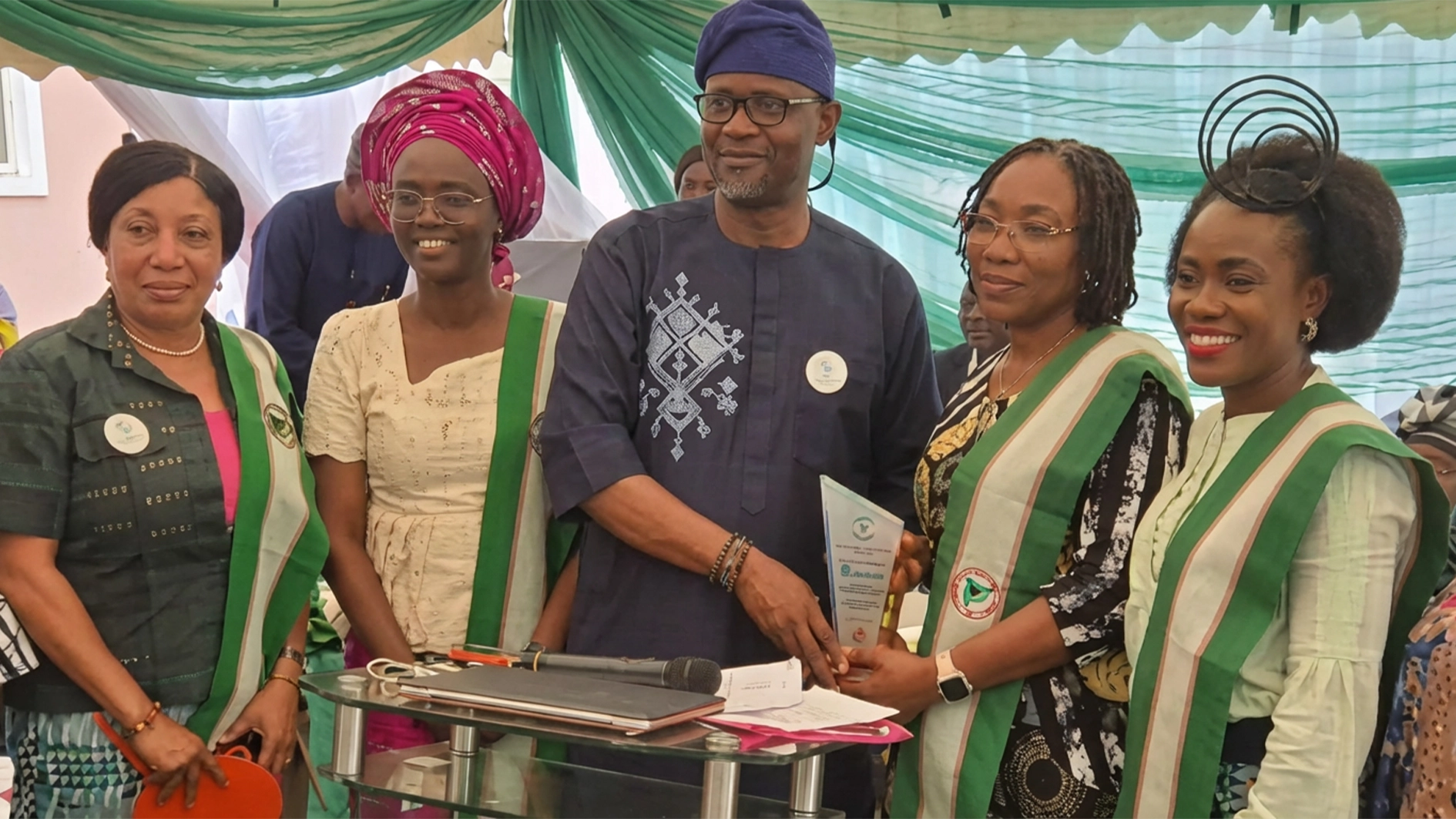
Recent figures from the United Nations Children Fund (UNICEF) and Food and Agricultural Organisation of the United Nations (FAO) show that Nigeria is not on track in achieving Sustainable Development Goal (SDG) 2, zero hunger, and SDG 3, good health and wellbeing, by 2030. In fact one in 10 children dies from hunger before age five in Nigeria.
Indeed, Nigeria’s quest for food and nutrition security is challenged by hunger and poor nutrition because a productive economy relies on a healthy and adequately nourished population.
According to the FAO, a person is food insecure when they lack regular access to enough safe and nutritious food for normal growth and development and an active, healthy life. Unfortunately, the leading causes of food insecurity include climatic extremes such as drought, poverty, and conflict.
Researches have shown that climate change has the potential to derail the achievement of a world without hunger and malnutrition because food production has a significant dependency on climatic variables such as rainfall, temperature, and relative humidity, amongst others.
To address this menace and as part of efforts to strengthen and increase understanding of the linkages between climate change, food security and nutrition and improving policies and practices for nutrition security, experts at the 2023 Nutrition Policy Dialogue say countries must deploy mechanisms to ensure resilient food production systems that will translate to better nutrition for the populace.
They said, in Nigeria, the National Climate Change Act supports the implementation of measures to curb the impact of climate change on food production; and direct nutrition interventions can reduce vulnerability and build resilience to climate change consequences.
The 2023 Nutrition Policy Dialogue, titled, “Strengthening Nutrition Outcomes in the Face of Climate Change,” was organised by the Nigeria Health Watch on Thursday, June 22.
The programme brought together stakeholders from the public and private sectors, as well as civil society organisations, to present issues affecting Nigerians’ public health, discuss potential solutions and opportunities for progress, and chart actionable recommendations for policy actions.
The dialogue drew participants from government, including the Ministries of Health, Agriculture and Environment, academia, researchers, development partners, civil society, nutrition commodities manufacturing and marketing organisations, relevant groups, associations and healthcare providers.
Managing Director, Nigeria Health Watch, Mrs. Vivianne Ihekweazu, in her opening remarks, at the hybrid event, said this year’s theme highlights the importance of multi-stakeholder and multi-sectoral collaboration to strengthen and increase understanding of the linkages. The gathering was both physical and virtual.
Ihekweazu said Nigeria Health Watch is a not-for-profit health communication and advocacy organisation that seeks to advocate for the health of Nigerians, engage and support the government and other partners in formulating and implementing positive and effective health policies, and hold duty-bearers accountable for delivering affordable and quality healthcare to Nigerians.
She said the unique capacity of Nigeria Health Watch lies in its communications expertise, which enables the organisation to provide solutions for evidence-based communications and advocacy in the health sector.
She said: “We are aware of the impact of climate change, and its impact on health and wellbeing, and nutrition outcomes, especially for children. Hence, we must work collaboratively to tackle this rising menace head-on.
“The nexus between climate change and nutrition is a formidable reality and hampers our ability to provide sustainable food, which affects our children’s access to nutritious diet. It also leads to inflation, as it destroys farm produce and livestock.
“Stakeholders, including the government at the national and sub-national levels, private sector, farmers, and others play a very important role in shaping the trajectory of the nation’s climate and food security.”
Director and Head of Prevention and Control of Micronutrient Deficiency, Federal Ministry of Health, Chief Uruakpa John, said: “The government must ensure nutrition is addressed in climate resilient development and national climate change processes, plans and programmes.
“We must also Increase policy coherence and multidisciplinary collaboration at local, regional, national and international levels to enhance food chain sustainability and local access to adequate nutrition, while promoting the rights of the vulnerable people to essential livelihood resources, including land rights and access to or protection of fishing grounds.”
UNICEF Chief of Water Sanitation and Hygiene (WASH), Dr. Jane Bevan, said: “If people are made more aware about the issues of climate change, and know how it affects them and their communities, then they will work towards that and demand from the government that more is done about it.
“We also need to sensitize the local governments about the issues of climate change. While there is a need for investment, we need more advocacy.”
A White Paper on Climate change and nutrition released at the end of the dialogue called for a integrated approach to be deployed and all relevant sectors to be involved in this approach. It noted there is need to include climate change factors into consideration while designing interventions and/or programmes such as what stakeholders in the nutrition space like United States Agency for International Development (USAID), UNICEF and others do.
It noted: “Food production has gone down and will continue to go down if we do nothing. And will worsen diverse forms of malnutrition. Agriculture in Nigeria is largely rain-fed and climate change negatively impacts crop productivity by decreasing crop yield and soil fertility. Besides this, global hunger is not only about lack of food, currently the world produced enough food to nourish every child, women and man in the planet but nearly one third of all the food products each year is lost before they are consumed.
“In Nigeria, farmers lose 50 per cent of their farm produce and 30 per cent of grains before they reach the market due to lack many climate induced factors such as high temperature that trickles down to molds ruining foods, lack of technology and so on. Little wonder why one in 10 children die from hunger before their fifth birthday and 32 per cent of children less than five years old are stunted, making Nigeria the country with the second highest burden of stunted children in the world.”
On WASH, the White Paper said sanitation indices are appalling and almost a quarter of Nigerians do not have access to WASH. It observed there is a close correlation between sanitation, hand-washing and hygiene to climate change. “Also, nutrition is linked to WASH in no small way. Even though 90 per cent know to wash hands properly, only eight per cent practice it.”
The White Paper called for enhancing the capacity of small holder famers by exposing them to new technology, exposing them to good agricultural practices such as diversification, introducing them to climate resistance seeds and livestock, and helping them learn sustainable farm practices that will reduce damages to environment through harvest.
It also recommended enhancement of community members in sustainable and environment friendly method of storage; holistic approach – bottom top and top bottom for specific approached to target different levels of people ;need to include the ministry of health in the steering committee for climate change; integrate climate change in the programming for food security; strengthen the capacity of both farmers (on the use of inorganic fertilizers) and the community; strengthen the leadership; prioritise evidence generation – quality data; increased funding for these climate adaptation approaches – make budget and release funds for climate change interventions.
Others are: empower women and youths; need for awareness and sensitisation – get everyone talking about nutrition; legislation on the use of fossil fuel (a shift to the use of abundant sun for solar energy); reduce cost of alternative power supply sources; align with the government as development partners; and integrating private sector in the walk to improve nutrition is key.
Meanwhile, the High-Level Panel of Experts on Food Security and Nutrition (HLPE – FSN) of the Committee on World Food Security (CFS), the United Nations body for assessing the science related to world food security and nutrition, published a report titled “Reducing inequalities for food security and nutrition” in June 2023. It explores how inequalities within food systems hinder efforts to combat food insecurity and malnutrition and identifies strategies for different stakeholders, including the private sector, to address these inequalities, drawing on consultations, diverse knowledge sources and a rigorous peer review.
According to the report, inequalities in food security and nutrition (FSN) exist globally, both within and between countries, leading to hunger and malnutrition in all its forms (such as under-nutrition, obesity, stunting, anemia, etc.), even in wealthy nations. These disparities have wide-ranging economic, environmental, and social impacts, which hinder progress towards the SDGs and perpetuate poverty.
Furthermore, climate change, according to the report, conflicts, and unequal outcomes in FSN exacerbate these inequalities, sometimes fuelling food riots and/or political unrest, driving further inequalities in a vicious cycle.
To address these issues, the report said it is crucial for both the public and private sectors to prioritise reducing malnutrition and food insecurity and their underlying drivers, aligning with global goals and human rights standards, and embracing the principle of “leaving no one behind” as outlined in the 2030 Agenda for Sustainable Development and called for by Tackling Inequality: An Agenda for Business Action, the flagship report by the Business Commission to Tackle Inequality.






